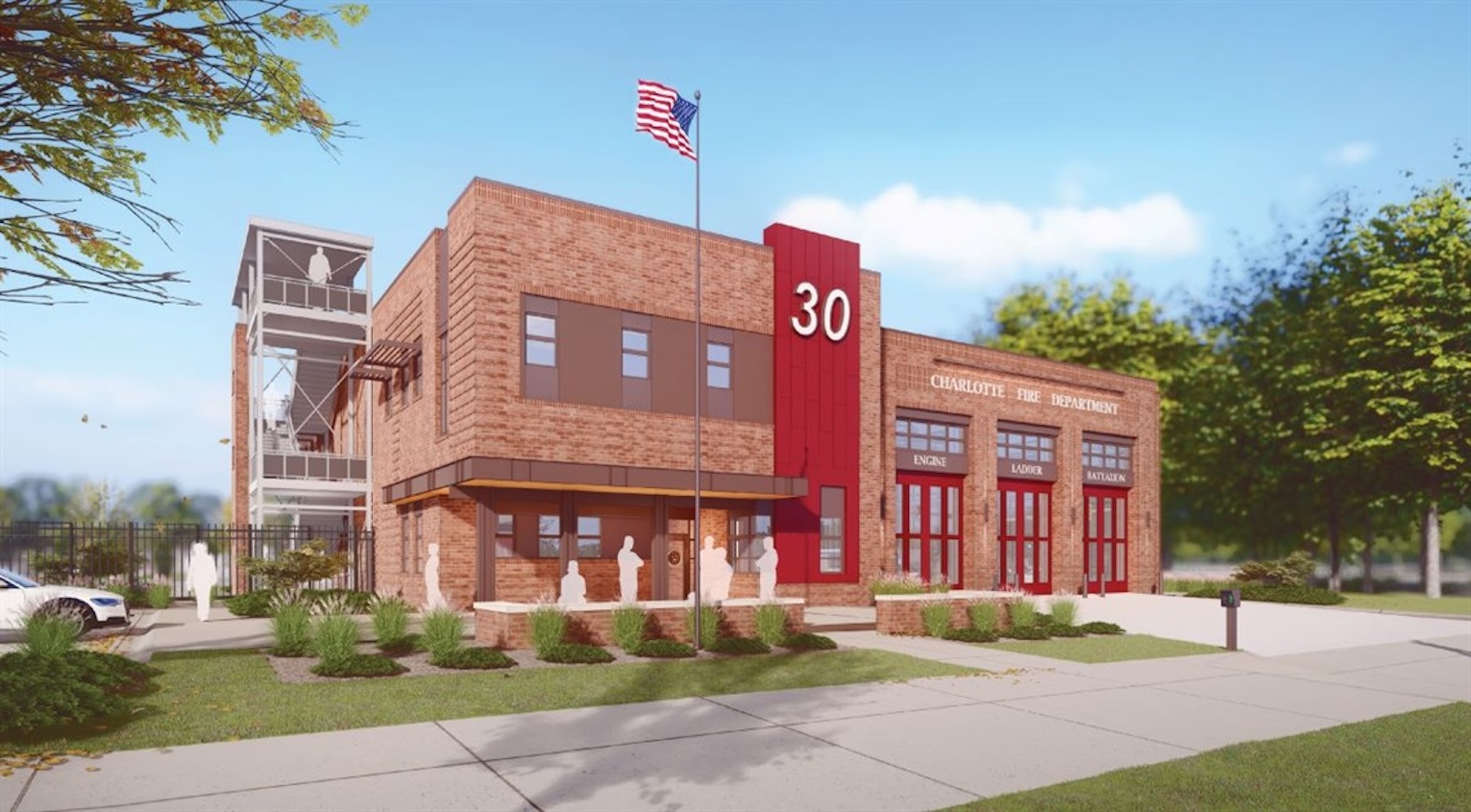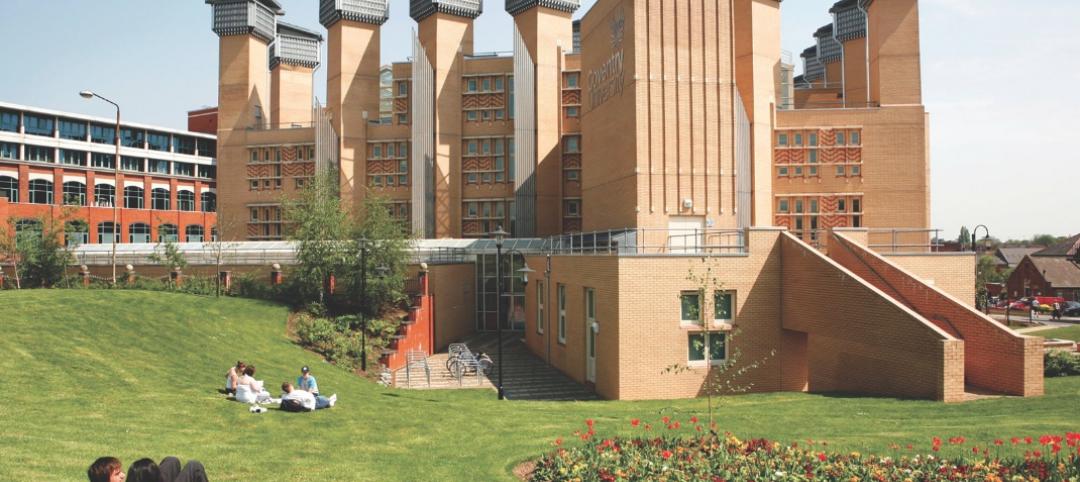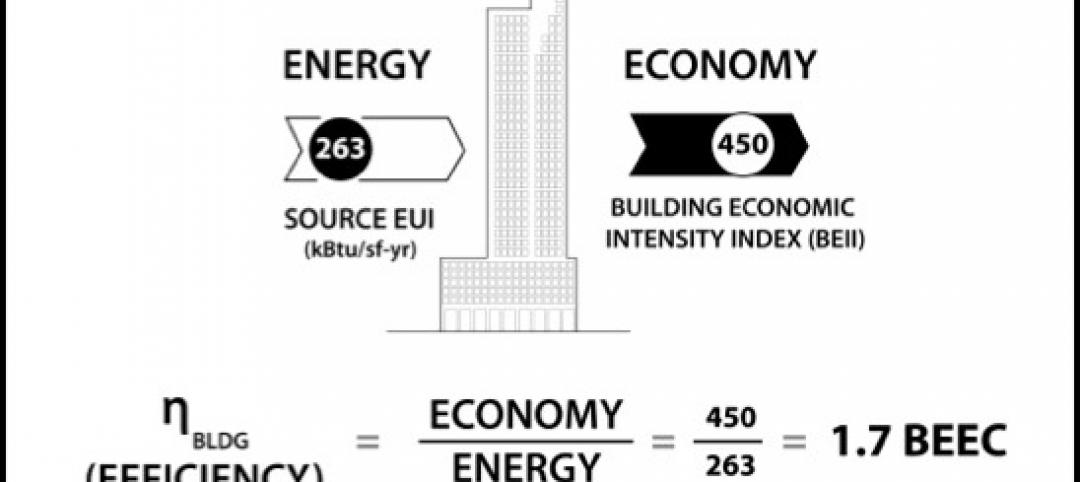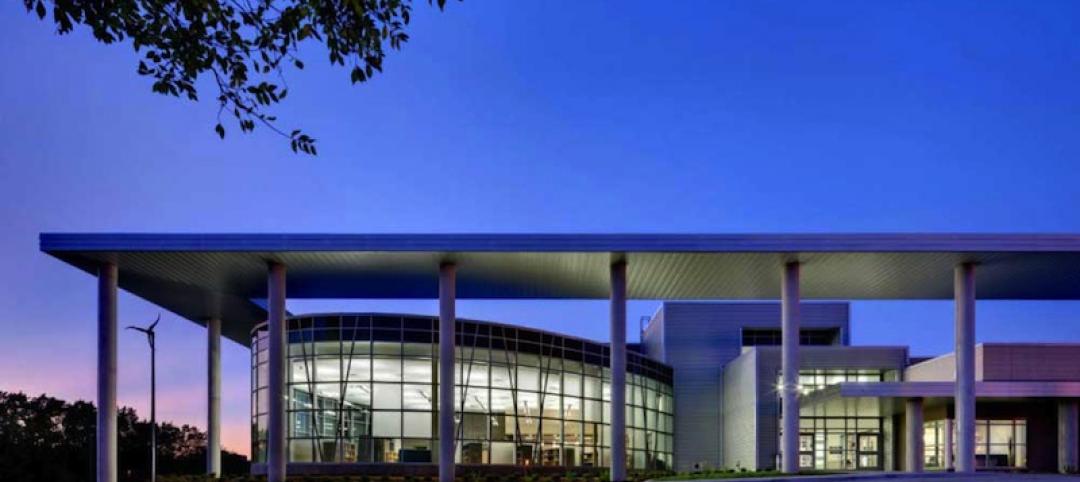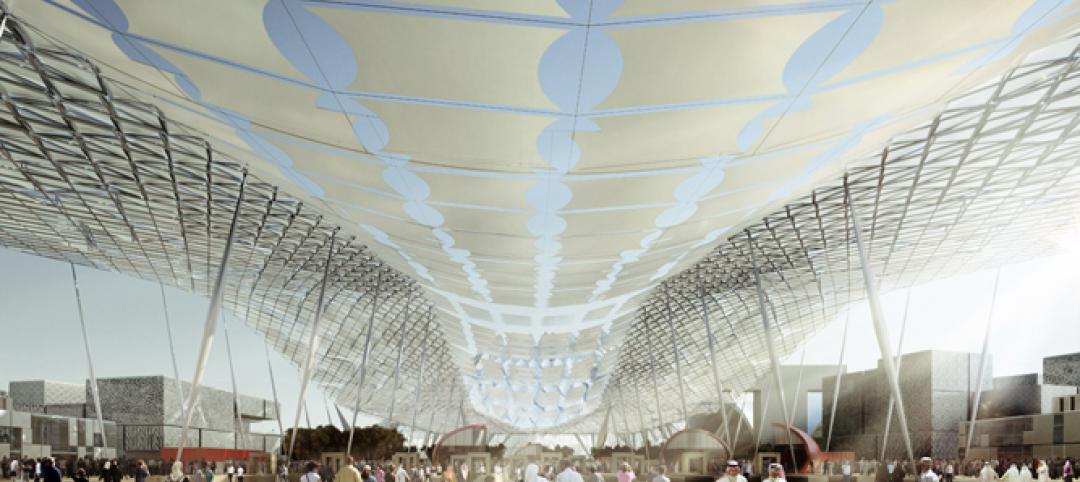Charlotte, N.C.’s new Fire Station #30 will be one of the country’s first all-electric fire stations, using no outside energy sources other than diesel fuel for one or two of the fire trucks. Multiple energy sources will power the station, including solar roof panels and geothermal wells. The two-story building features three truck bays, two fire poles, dispatch area, contamination room, and gear storage.
The $16.4 million, 14,000 sf station will be completed next fall. It will replace the original Station #30, a 1950’s-era residential home that was converted to a fire station in 1991. The new two-story building includes a fitness area with locker rooms, a kitchen and dining facility, a day room lounge, and offices for the captain and battalion chief. The second floor houses sleeping quarters and additional lockers and restrooms.
Geothermal wells will supply air conditioning as well as energy-efficient floor heating. Electric vehicle charging stations will charge the electric fire truck with additional wiring installed for future EV chargers. The site will also include two EV parking stations for employee cars.
RELATED STORY
Modular fire station allows for possible future reconfigurations
Core and shell construction includes the installation of new storefront systems of wall paneling and brick siding. A parking lot along with landscaping that includes tree planting is also part of the program. Throughout the project, general contractor Swinerton plans to use OpenSpace job site capturing, BIM 360 project collaboration, and drones to document construction.
Owner: City of Charlotte
Developer: Swinerton
Design architect/ Architect of record: ADW Architects
MEP engineering
Mechanical: Action Mechanical Contractors Inc.
Electrical: Stelco Electric LLC.
Plumbing: Peters Pipers Inc.
Structural engineer: Stewart Engineering
Here is the full press release from Swinerton:
Swinerton, an industry-leading commercial general contractor with offices nationwide, announces the construction of Charlotte Fire Department Station #30, one of the first all-electric fire stations in the United States. The $16.4 million build sets a new standard for public and civic spaces across North Carolina. Construction of the 14,000-square-foot project is underway and slated to be complete fall 2025.
“Sustainability tops the list of priorities at Swinerton,” explains Kevin Smith, Vice President, Division Manager, Swinerton’s Carolinas Division. “This new fire station, which will use no outside energy sources other than diesel fuel for one or two of the gas-powered fire trucks, is a testament to Charlotte’s commitment to its Strategic Energy Action Plan. We hope this is the first of many partnerships with the City of Charlotte to support its pursuit of this exceptionally important goal.” Initiated in June 2018, the city resolution strives to have its fleets and facilities be fueled by 100 percent zero-carbon sources by 2030.
Located at 3019 Beam Rd. on approximately three acres in southwest Charlotte, directly across from the city’s police and fire training academy, the all-electric fire station replaces the original Station #30, a 1950’s-era residential home that was converted to a fire station in 1991. Designed by ADW Architects, the new two-story building features three truck bays with accessibility from two fire poles, a dispatch area, decontamination room and gear storage. Additional amenities include a fitness area with locker rooms, a kitchen and dining facility, a day room lounge and offices for the captain and battalion chief. The second floor houses the sleeping quarters and additional lockers and restrooms.
Multiple energy sources will power Station #30. Solar roof panels are set to power the station while geothermic wells will supply air conditioning as well as energy-efficient floor heating. Electric vehicle charging stations will charge the electric fire truck with additional wiring installed for future EV chargers. The site will also include two EV parking stations for employee cars. The city plans to seek LEED® Silver certification as a showpiece for all future public buildings. “These sustainable measures promise a tangible reduction in operational carbon emissions compared to existing fire stations,” adds Smith.
As general contractor, Swinerton is providing ground-up construction services that include pre- and post-construction site work as well as core and shell construction that includes the installation of new storefront systems of wall paneling and brick siding. A parking lot along with landscaping that includes tree plantings, concludes the construction project. Throughout the project, Swinerton plans to use some of the many technologies in its arsenal, including OpenSpace job site capturing, BIM 360 project collaboration and drones to document construction.
Since expanding to the Southeast in 2018, the Carolinas Division has constructed nearly $400 million of commercial environments. The dedicated team of 90 construction leaders specializes in corporate interiors and buildings, healthcare, education, restaurants and hospitality, multifamily and mass timber construction.
Related Stories
| Jan 13, 2014
Custom exterior fabricator A. Zahner unveils free façade design software for architects
The web-based tool uses the company's factory floor like "a massive rapid prototype machine,” allowing designers to manipulate designs on the fly based on cost and other factors, according to CEO/President Bill Zahner.
| Jan 11, 2014
Getting to net-zero energy with brick masonry construction [AIA course]
When targeting net-zero energy performance, AEC professionals are advised to tackle energy demand first. This AIA course covers brick masonry's role in reducing energy consumption in buildings.
| Dec 31, 2013
BD+C's top 10 stories of 2013
The world's tallest twisting tower and the rise of augmented reality technology in construction were among the 10 most popular articles posted on Building Design+Construction's website, BDCnetwork.com.
| Dec 27, 2013
U.S. Capitol dome’s cracks to be repaired during $60 million renovation
Rings of scaffolding will start to rise this spring around the cast-iron dome of the U.S. Capitol in Washington as part of a $60 million renovation project to repair more than 1,300 cracks.
| Dec 20, 2013
Can energy hogs still be considered efficient buildings? Yes, say engineers at Buro Happold
A new tool from the engineering firm Buro Happold takes into account both energy and economic performance of buildings for a true measure of efficiency.
| Dec 13, 2013
Safe and sound: 10 solutions for fire and life safety
From a dual fire-CO detector to an aspiration-sensing fire alarm, BD+C editors present a roundup of new fire and life safety products and technologies.
| Dec 10, 2013
16 great solutions for architects, engineers, and contractors
From a crowd-funded smart shovel to a why-didn’t-someone-do-this-sooner scheme for managing traffic in public restrooms, these ideas are noteworthy for creative problem-solving. Here are some of the most intriguing innovations the BD+C community has brought to our attention this year.
| Dec 9, 2013
Skaneateles, N.Y., converts old firehouse to net-zero village hall
The Finger Lakes village of Skaneateles, N.Y., renovated its vacant firehouse into Skaneateles Village Hall, the first municipal net-zero energy building in the state of New York.
| Dec 4, 2013
First look: Dubai's winning bid for World Expo 2020 [slideshow]
Dubai has been chosen as the site of the 2020 World Expo. HOK led the design team that developed the master plan for the Expo, which is expected to draw more than 25 million visitors from October 2020 through April 2021.
| Dec 3, 2013
Architects urge government to reform design-build contracting process
Current federal contracting laws are discouraging talented architects from competing for federal contracts, depriving government and, by inference, taxpayers of the best design expertise available, according to AIA testimony presented today on Capitol Hill.


